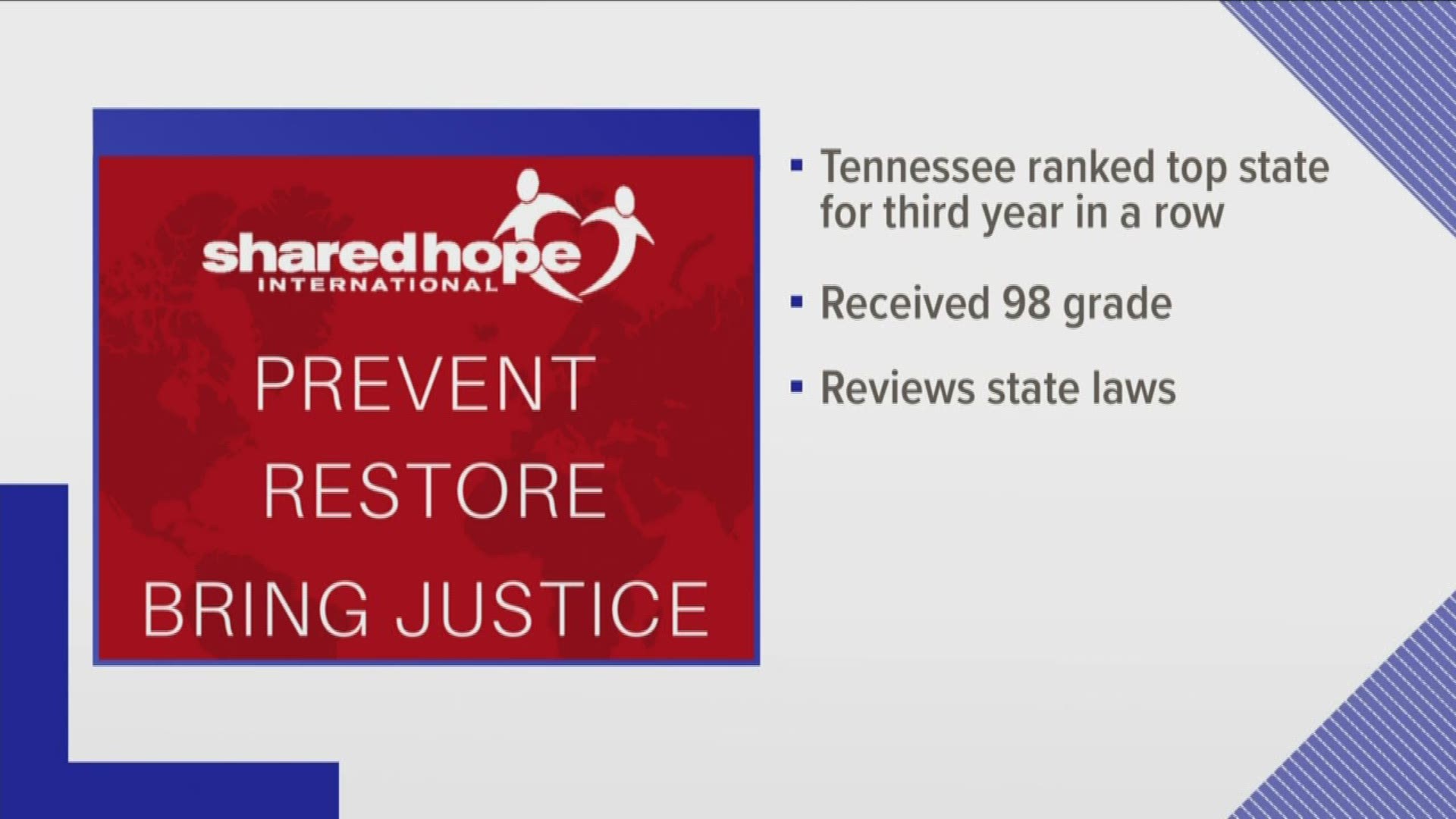The state of Tennessee was recognized as the top in the nation for a third year in a row in an annual report card evaluating state efforts in combating child sex trafficking.
Shared Hope International's 'Protected Innocence Challenge' grades each state on their legal and legislative efforts to protect juvenile sex trafficking survivors and hold buyers and traffickers accountable.
Tennessee has been the top-graded state in the U.S. in this report since 2017, with the organization saying the state continues to extend civil statues of limitations and remove criminal statutes of limitations in the fight -- allowing survivors more time to recognize their victimization before seeking justice in the court system.
Tennessee law says child victims of trafficking cannot be charged with prostitution.
"When that law changed we truly aligned... I think our state laws around human trafficking aligned them more correctly with what we think as a public," Restore Corps. founder Rachel Haaga said.
In Tennessee, human trafficking -- a form of modern day slavery -- remains a prevalent problem that lawmakers, authorities and numerous agencies like Restore Corps. battle on all fronts. The Tennessee Bureau of Investigation said a child is bought or sold for sex in the U.S. every two minutes, and the crime of human trafficking is the second-fasted growing criminal industry behind drug trafficking.
RELATED: Social media posts prompt organization to warn community how to spot fake human trafficking tactics
Shared Hope said it has been tracking states' progress in identifying and adapting to the growing problem, and while strides have been made since 2011 -- more work needs to be done across the country. TBI Director David Rausch agreed.
“We’re thankful for Shared Hope International’s recognition of being a national leader in this work, but we have more to do, because there are more victims out there right now," he said. "That’s why we remain committed to identifying and rescuing them, and connecting them to vital survivor services. Trafficking is a demand-driven crime, and that’s why we also will keep working to hold buyers and traffickers accountable under some of the toughest laws in the country, to send a strong message that we will not tolerate this kind of injustice in Tennessee.”

